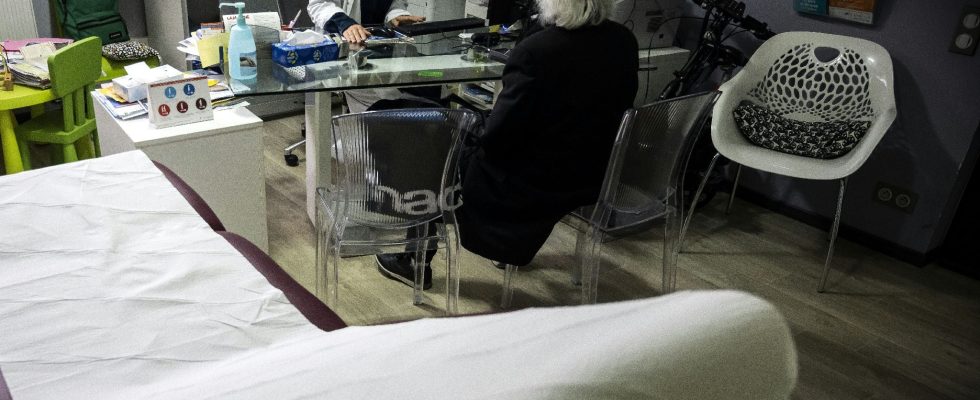It is a very in-depth comparative study between the German and French health systems, which opens avenues for reflection to improve medical coverage in France. The Institute for Research and Documentation in Health Economics (Irdes), in collaboration with the High Council for the Financing of Social Protection (HCfips), published this Thursday, March 28 a very thorough reporttitled: “Comparison of health expenditure in France and Germany.”
With a first postulate: among OECD countries, Germany is number two in terms of health spending (12.7% of GDP), just ahead of France (12.1%), and behind the United States. United (16.6%). Almost all French people are covered by compulsory health insurance, compared to 87% of Germans who can, above a certain level of income, leave it for private insurance.
A “decentralized” German model
But beyond the gross amount of this expenditure, it is above all their effectiveness which raises questions. The report focuses in particular on the subject of community medicine, with a “decentralized”, “co-managed” with health professionals and “more regulated” German model which could “seem to provide lessons”, summarized during a press conference the director of Irdes, Denis Reynaud.
Between the two countries, the overall density of doctors is “close”, explains the study. However, general practitioners represent 56% of town doctors in France compared to 36% across the Rhine. Particularly because the majority of individual practices in Germany employ medical and nursing assistants, or interns – on average 5.2 full-time equivalents. This makes it possible to ensure “a high volume of activity, by reducing medical time per patient by half compared to France”, underlines the study, while in France, only 5% of general practitioners had at the start of 2022 a medical assistant and 5% from another paramedic.
For the president of Irdes Denis Raynaud, the subject of the distribution of doctors is also crucial. Here too, a German model “much better than in France”, due to a regulated installation. Doctors must obtain a license, issued by doctors’ associations according to health needs.
Better pay in Germany
Another significant point of comparison: remuneration. In France, doctors are paid essentially “per consultation”, with the addition of a “flat rate” which depends on the number of patients followed. In Germany, this flat rate portion is higher and the price of the consultation depends on the procedures performed. Pricing is “simpler” (3,000 acts listed compared to 13,000), and regularly renegotiated.
Which leads to more advantageous remuneration. Thus, German doctors receive four times the average salary, compared to three times in France, with less significant disparities: general practitioners have remuneration almost equivalent to surgeons, compared to half as much in France. Fee overruns are also impossible in the German universal system.
“Monitoring the quality of care is more advanced,” the study also judges. German doctors, controlled by their peers, tend to limit the costs of prescriptions, in particular through the use of generics. For example, in Germany, mental health care “relies a lot” on the 31,000 non-medical psychotherapists approved (for 6,000 psychiatrists). France consumes “15 times more” anxiolytics, noted Denis Raynaud.
The French hospital better off
Second part of the report, the subject of the hospital. This time, with a French model which stands out positively from that of its German neighbor. The study points to “a structural surplus of beds with few incentives for efficiency” in Germany, with, since the Covid-19 epidemic, a low level of activity which endangers the viability of the system. Enough to conclude that the hospital system across the Rhine appears “less efficient” than in France.
Outpatient hospitalization is also much less developed in Germany, the study adds. But both countries suffer from the same problems of career attractiveness. In Germany, however, interns remain much better paid: 150% of the average salary in the fourth year, compared to 75% in France.
